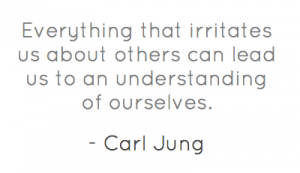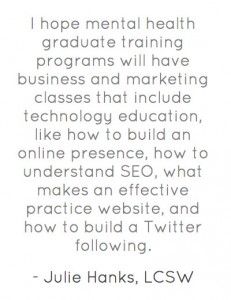
 photo credit: Marcin Wichary
photo credit: Marcin Wichary
Are you going to work and not getting paid?
Therapists in my consulting practice frequently complain of a high no-show rate, especially with new clients. They often feel powerless to enforce their policies fearing if they're too strict, clients will drop out of treatment.
I used to have this problem, too, and ended up feeling resentful when I had rushed to get to my scheduled session only to have a client no-show. There were also those days when a handful of clients who didn't show up or cancelled at the last minute. Since I was paying for child care there were times when I actually lost money by going to work. I knew something had to change.
While some clients would pay for the no-show or late cancellations at their next appointment, others would drop out of therapy, not return phone calls, and not respond to bills I sent to them. Additionally, many of the managed care panels I participated on at the time didn't reimburse for no-shows, and our contract didn't allow me to charge the client for sessions not attended. This was another reason I resigned from all managed care panels.
May I have your credit card number?
A few years ago, I started requiring new clients to provide a credit card number before they could schedule an initial appointment with me or any of the therapists at my clinic. New clients were informed that they would not be charged until the time of service, but that our policy is to charge the therapist's full-fee for no shows and cancellations made within 24 hours of the schedule appointment time.
If hotels, massage therapists, and hair salons can require a credit card to hold your room or appointment, why can't therapists require clients to make a financial investment in their treatment the actual sessions? Surprisingly, we've had no resistance from new clients when my office manager tells them about our policy and ask for their credit card number. Not surprisingly, my practice has very few no shows or late cancellations and the few that we do have, we charge for.
For my clinic of 13 therapists our percentage of no-show or late cancellation sessions that we don't collect our full-fee is less than 1% of our total number of sessions.
Suggested script for taking credit card number
I have an amazing office manager who screens all new client inquiries, informs them of how to access new client paperwork, takes down the credit card number and explains our financial policies Here's an example of what she says.
Yes, Julie has an opening next Wed. at 3:00PM. In order to confirm that appointment with Julie we require a credit card number on hold. You will not be charged until the time of service and you're free to use another form of payment at your session. What type of card would you like to use?
If for any reason you are unable to make your scheduled appointment time please give us at least 24 hours notice of cancellation or we will charge your credit card for the full session amount. Do you have any questions?
Tightening up our no-show policy has:
- Weeded out the clients who aren't ready to commit fully to the therapeutic process.
- Motivated our clients to be in charge of their appointment times and give us ample notice if they can't attend a scheduled session.
- Allowed my therapists to get paid for sessions whether the client shows up or not.
- Saved administrative costs and collection fees.
- Trained clients to value and respect our time and services.
Is it time to tighten-up, modify, or enforce your no-show or late cancellation policies?
What challenges do you face in enforcing your policies?
 Pick up Tuesday's Wall Street Journal and check out the "Bonds" column by Elizabeth Bernstein, or read it online: Are We All Braggarts Now?
Pick up Tuesday's Wall Street Journal and check out the "Bonds" column by Elizabeth Bernstein, or read it online: Are We All Braggarts Now?








As healers, we genuinely like to do our work. Guiding clients through the therapy process and seeing them make progress is why we do what we do. But if you're in private practice, you know there's a lot going on in the back end and that it's crucial to run an efficient and organized business.